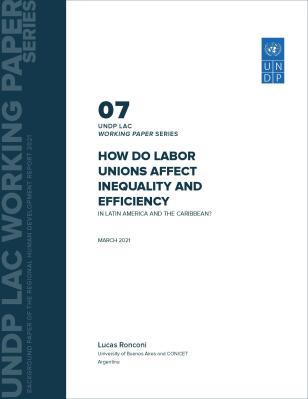How do Labor Unions Affect Inequality and Efficiency in Latin America and the Caribbean?

How do Labor Unions Affect Inequality and Efficiency in Latin America and the Caribbean?
pdf (0.5MB)
DownloadHow do Labor Unions Affect Inequality and Efficiency in Latin America and the Caribbean?
March 30, 2021
This paper posits that we have a limited understanding, both theoretically and empirically, of how labor unions affect welfare in the LAC region. Alternative approaches developed in other contexts, such as the neoclassical insider-outsider theory or a Marxist perspective, do not easily translate to the region. The private sector is more concentrated than on other continents, and most countries have a strong executive power at the expense of a politicized civil service and weak political parties. Furthermore, non-compliance with laws is pervasive. In such a context, both public and private sector labor unions have more room to improve welfare, but are also more likely to be co-opted by powerful political and economic elites. In addition, the available empirical evidence is relatively small and difficult to interpret due to endogeneity concerns.
Given this situation, I attempt to contribute to the literature in three dimensions: First, I emphasize the importance of enforcement and compliance. Second, I devote substantial space to the political arena, mainly because this is where labor unions in the region tend to exert more influence over efficiency and equity. Finally, I provide a few novel metrics to a subject that is difficult to quantify.

 Locations
Locations





